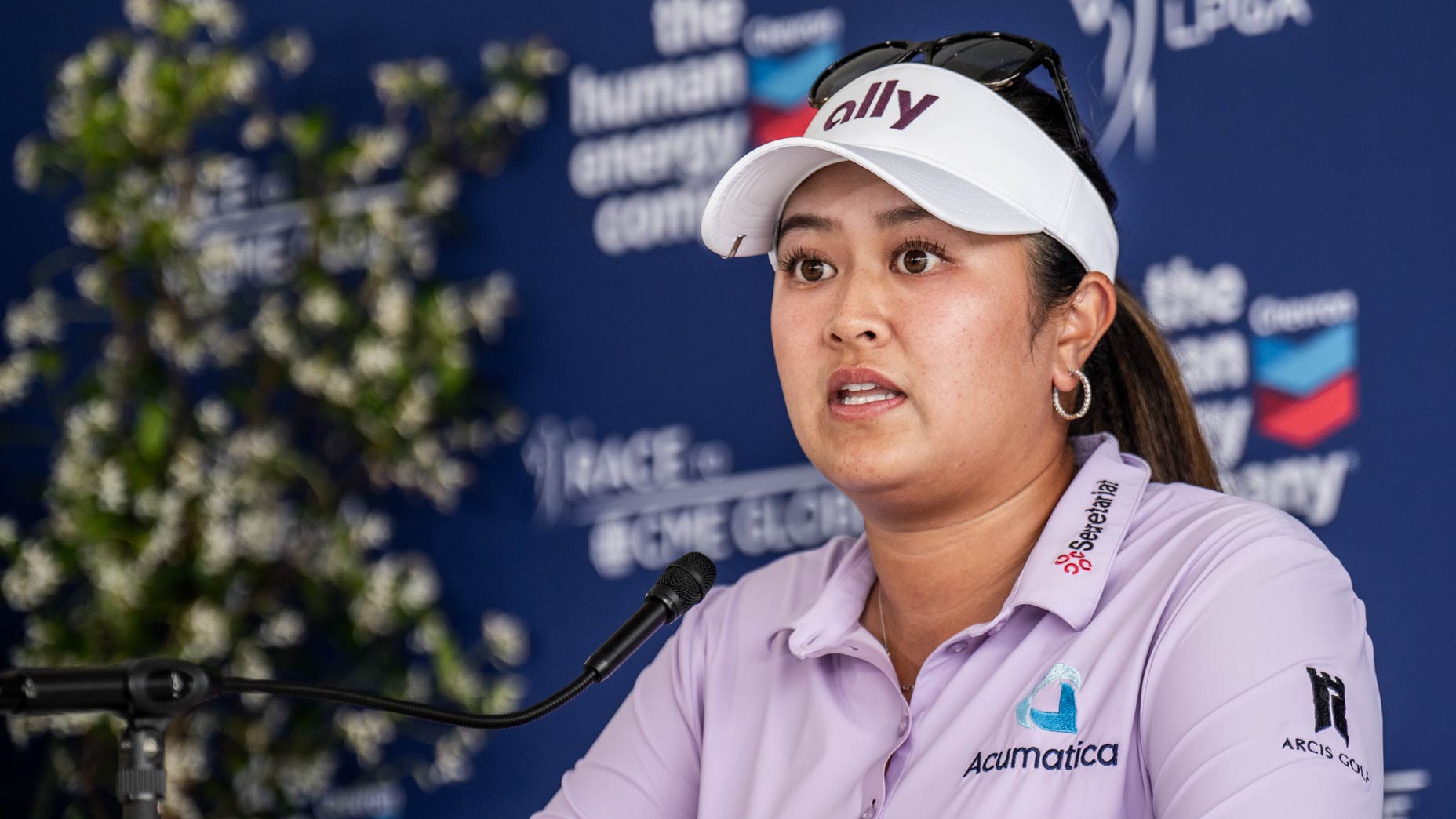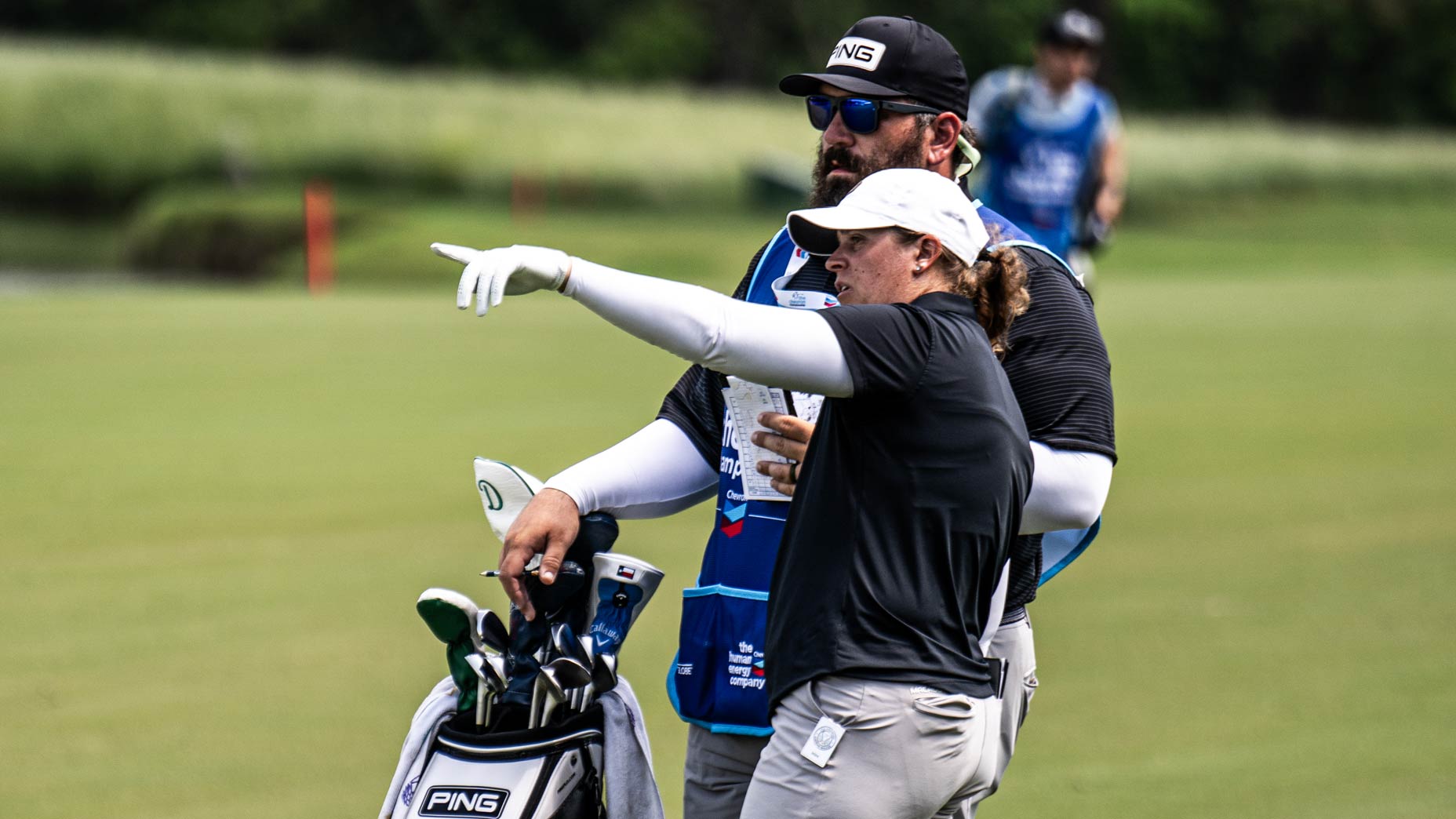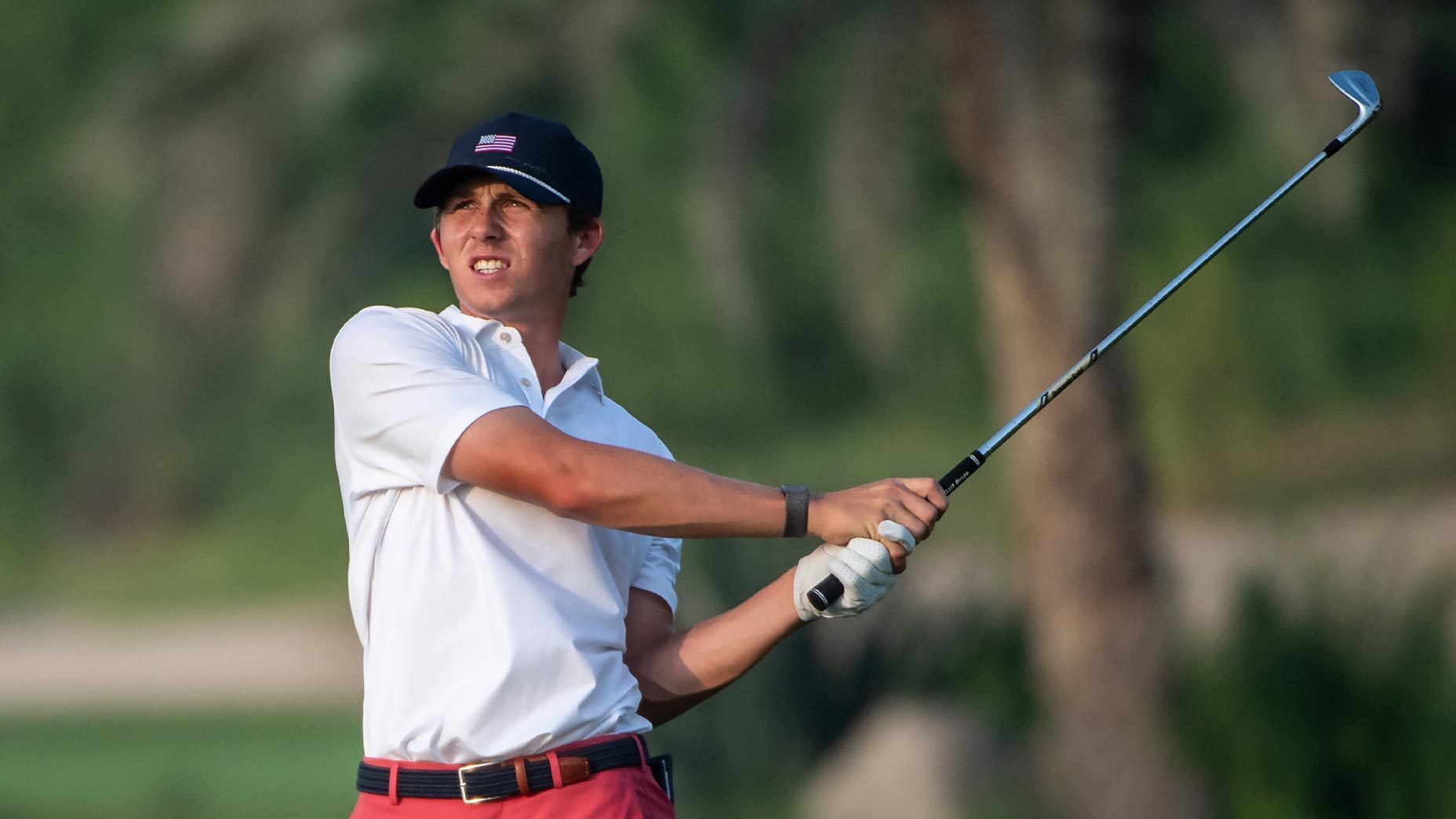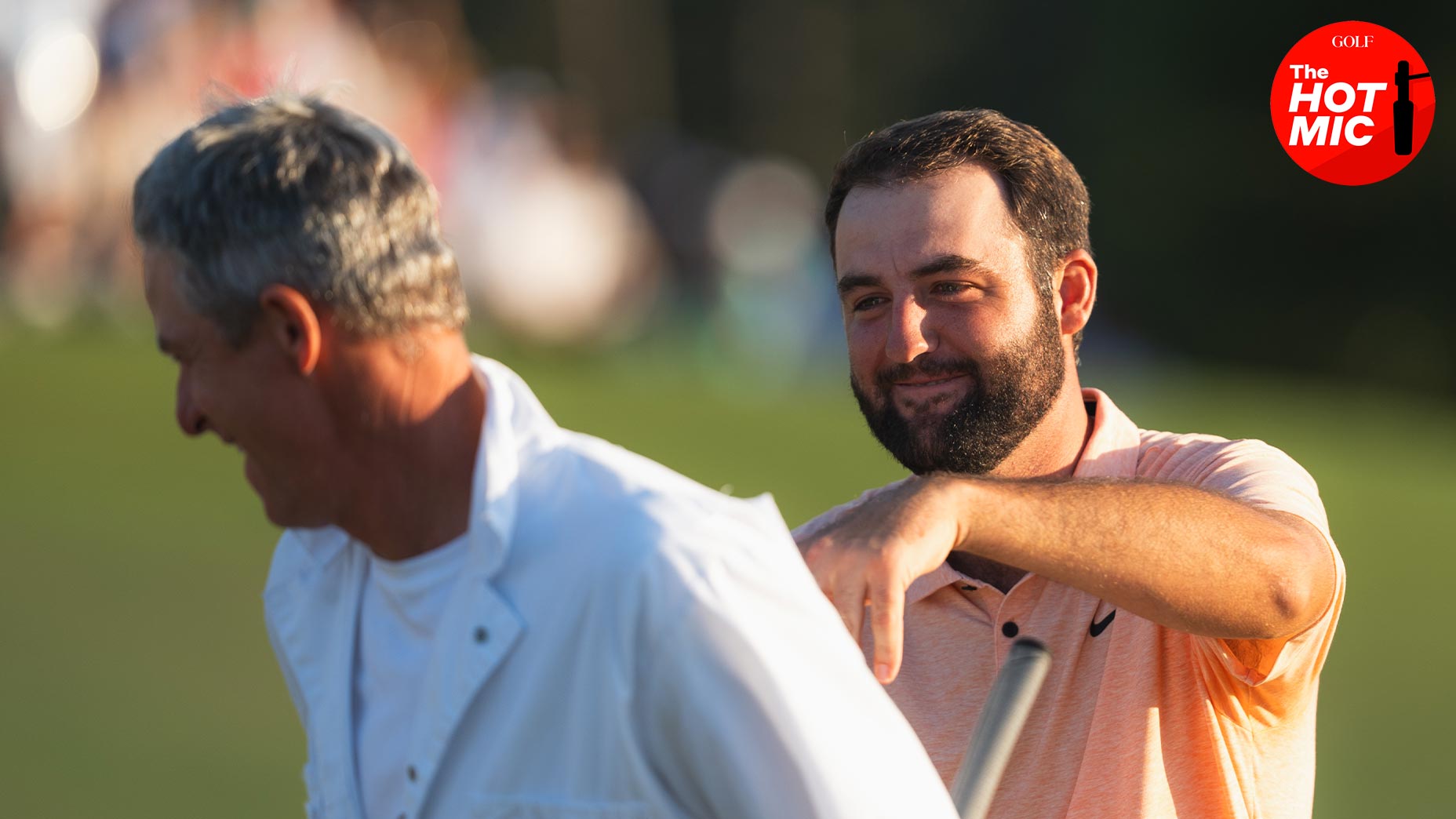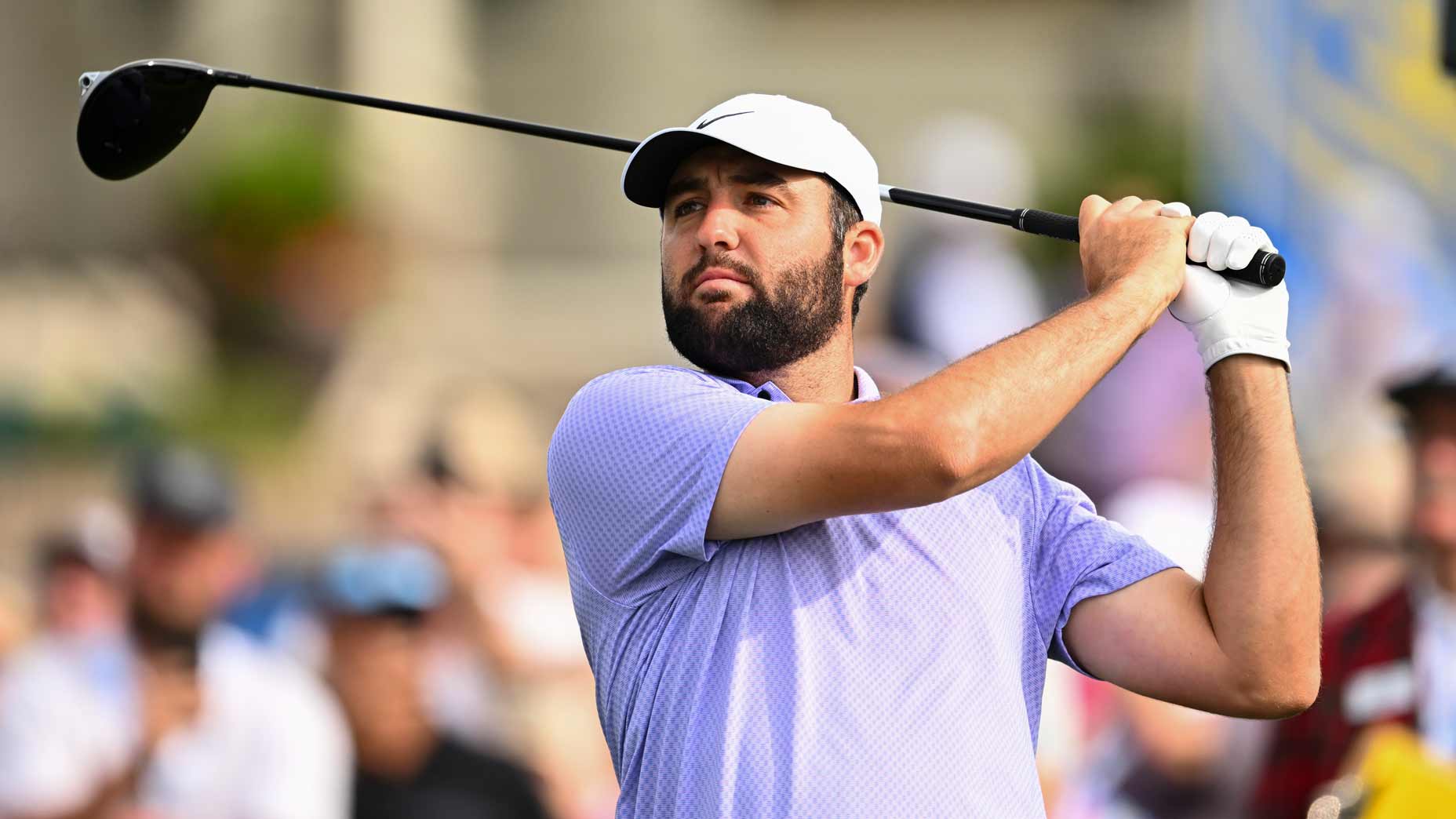For 21 years John Smoltz built a Hall of Fame career on the mound. Now, at 51 years old, the former pitcher and current FOX Sports Lead MLB Analyst, who won 213 games and saved 154 more, is trying his hand at professional golf.
Smoltz, who qualified for the 2018 U.S. Senior Open, received three sponsor’s exemptions for the 2019 PGA Tour Champions season. The first of which is this week at the Cologuard Classic in Arizona.
GOLF.com’s Ryan Asselta had a chance to catch up with Smoltz as he made final preparations for his Champions debut. It’s taken months for the former Braves hurler to get his body ready for this moment, and along with reminiscing about his off-day golf outings during his baseball playing days, Smoltz made it clear he’s very serious about putting his game to the test against the best in the world… with a tiny “What if?” in the back of his mind.
Ryan Asselta: How ready is your game for the PGA Tour Champions?
John Smoltz: Well, it’s a lot more ready than it was last year when I qualified for the U.S. Senior Open. I’ve put in a lot of work. I’ve worked on my body to get stronger. This opportunity has been presented to me and I am just jumping in with a full smile on my face realizing these guys are the best in the world. So to think that I can compete in a given tournament with some of these guys. It’s an awesome challenge and one that I look at selfishly to help me figure out how to get my game to the next level. The best way to do that is competing.
You’re juggling a few different schedules between broadcasting and golf. Anything particular you’ve been working on to prepare?
Yeah, my shoulder’s been off for the last seven or eight years since retiring. I mean, it’s just never been strong enough to compete at the level I want to. I kind of found a way to be athletic to just compensate for it. And golf is just not a great sport to compensate. You know, you’ve got to have trust and you’ve gotta be able to release the club. And I think the biggest thing that I’ve worked on is being able to stand over shot and release the club, not guide it, not get an in between, just release it and hit a golf shot and it goes where it goes. And I think the biggest thing is physically being able to trust that and then mentally you start getting more competence in what you think you can do. I played baseball and got beat up. I had many surgeries, and if I had time to golf I could never practice because I only had so many shots that I felt like I could hit before I fatigued out. I’m in a position now, with my schedule and being on the road a lot and that I don’t have the luxury to just dedicate my time just to golf. When I can, I try to practice as much as I can.
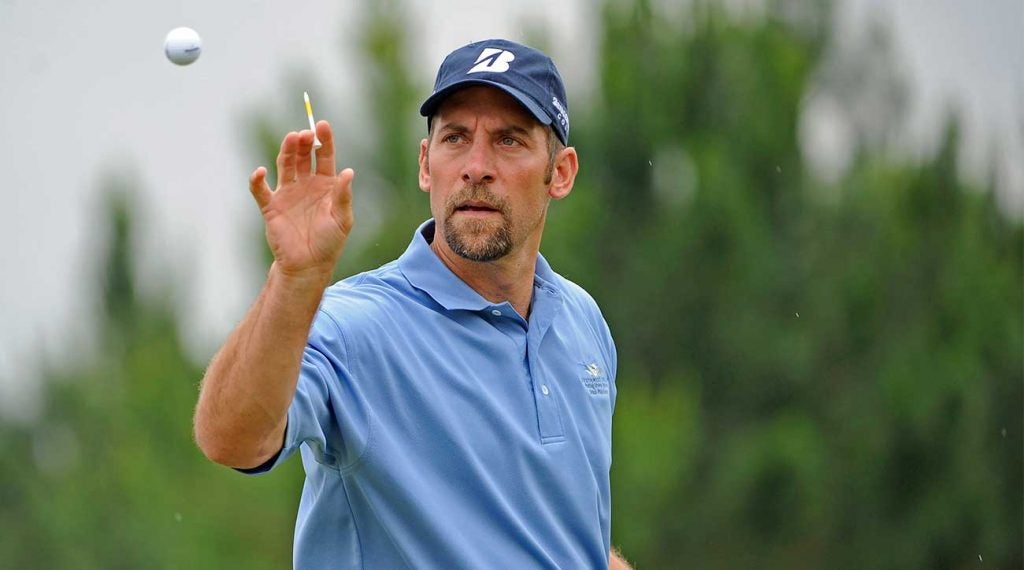
You had a Hall-of-Fame major-league career, you’re a broadcaster for Fox and MLB. What drives you at this point?
I think the competition drives me to compete and to become the best version of myself that I can. I’m not afraid to fail and I embrace that failure. People are going to be looking to say, “I told you so,” or “he can’t do this.” I’ve got three tournaments to find something out. I’m not going to just jump ship and quit my job and jump into golf. I want to see what I can qualify for in the future and see what I can compete in. It drives me beyond belief. I think anyone who plays professional sports becomes a competition addict. And if there’s one thing that’s been missing, for me, it’s that ability to compete at a high level. I also understand there’s another component that comes with playing. I understand what the sponsors are going to be able to get out of this. I understand the notoriety and the opportunity to help bring awareness to colon cancer, and early screening. What Cologuard is doing is very cool. If anyone gets a hole in one on the 16th hole and 50,000 fans attend the Cologuard Classic over three days, then Cologuard will make a donation of $500,000 to colorectal cancer research. It would be the most unbelievable thing in the world to get another hole in one, and if it happened to be on the 16 hole, that would be phenomenal.
Say you learn you can certainly compete with these guys on the PGA Tour Champions. Do you pivot and dedicate more time to professional golf?
I think that that’s certainly within the scope of how I think. I’d have to have things work out and still selectively try to qualify for individual events. This is not something in the next three years that I can replace because of what I’m contractually obligated to do. So in three years if I feel that there’s a good probability, I would absolutely try to attain that.
A big reason you’ve gotten to this point is because you were a pitcher. It seems like pitchers, in baseball, and kickers, in football, have the most free time to play golf during their careers. You played a ton of golf with your Atlanta Braves teammates Greg Maddux and Tom Glavine. Any classic moments that you remember with those guys?
Oh, we have so many. I mean our classic off days. We had some of the most historic off days depending on where we were in the country. On the west coast, being able to go play Cypress Point and Spyglass on the same day and a half. We’d have a full day off and we could play more the next morning and then drive to San Francisco, and complete our baseball duties with the club. It kept us fresh. It kept us motivated to play as long as we could and we never took our sport for granted and sacrificed it with something else. We used golf as a benefit of relaxing, getting away from the mundane overkill of our own sport that can suffocate you at times, and we were able to get away and take our mind off baseball for a while. That certainly was a huge part of our careers and it was a huge part of our relationship.
Are there some similarities between being a golfer and a pitcher?
I think there are a lot of mental parallels. To think by yourself and being forced to execute something and releasing it and then letting the results be what they are. A lot of those similarities do come into play. You know, if you have a negative thought on the course, a negative thing is going to happen. If you say, “Don’t hang the slider” or “Don’t hit it right,” the brain doesn’t focus on, “don’t.” It just ends up with the last command: “Hang slider” or “Hit it right.” And so what I learned to do on the mound, I also learned to do a little better on the golf course. Use all positive commands. From a mechanical standpoint, as pitchers, even though we had tremendous balance over the rubber, we kind of power slide, or go lateral to the plate. And the one thing you really don’t want to have happen in the golf swing is go lateral. You want to stay centered over the ball and rotate around it. So that’s the one, basic mechanical difference that you have to learn.
We’ve seen guys like Tony Romo and Mark Mulder play in PGA Tour events. Steph Curry has played in a Web.com tour event. Do you see a time where an elite athlete can transition post-playing career and become a full-time professional golfer?
No. Full time is when it becomes much more difficult. You have to have a lot of things go right, and not to mention simply qualifying. The level of celebrity golf has gotten so much better though and the ability to play at that level in spurts is definitely there. Mark Mulder’s one of the best we have in the celebrity world. Him and Mardy Fish. There’s so many more coming. It used to be three to five could compete in any given tournament. It’s now getting closer to 10 to 12. I would never say never. You know, we’ve seen the greatness of Deion Sanders and Bo Jackson, with two sports. But playing under pressure makes it different. Forget the top 120 in the world, but if you gave the next 120 players in golf, financial freedom and exemptions, you wouldn’t believe how good 240 players would be able to play. But because people are trying to make a livelihood and fight for their PGA Tour card, that pressure sometimes alone is enough to keep them from being able to be freed up and be type of golfer they can be. The same can be said for when you’re crossing over to a sport that isn’t your first. You get worried about things, like what other people think, instead of the ability that you have and the belief in your ability. So there’s a lot to be said for the freedom of doing something and knowing that your previous sport has taken care of that for you. You know what I mean?
Yeah. A little different grinding out top 50s on tour each week, compared to having a guaranteed major league contract!
Exactly!


